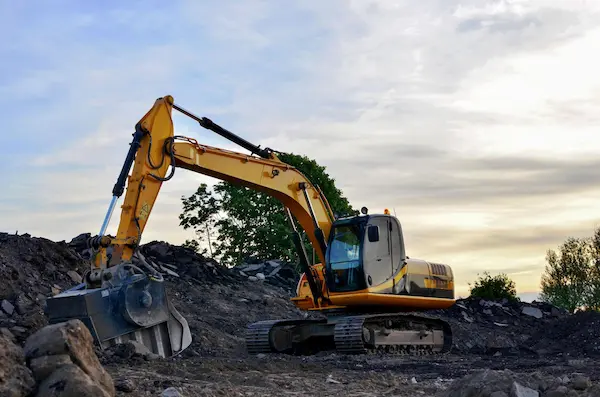
Does Demolition Require Planning Permission?
Does Demolition Require Planning Permission is a significant aspect of construction and property development. However, before embarking on a demolition project, it’s crucial to understand whether it requires planning permission. This article aims to explore whether Does Demolition Require Planning Permission.
What is Demolition?
Demolition refers to the deliberate dismantling, tearing down, or removal of partially or complete structures. It involves using specialized equipment and techniques to bring down buildings, bridges, or any other man-made structures.
Types of Demolition
- Implosion: This method involves strategically placing explosives to implode a structure inward.
- Explosive Demolition: Controlled explosions are used to bring down structures efficiently.
- Mechanical Demolition: Heavy machinery such as excavators and bulldozers are utilized to dismantle structures.
- Deconstruction: This eco-friendly approach involves systematically dismantling a structure to salvage reusable materials.
Importance of Planning Permission
Obtaining planning permission is a crucial step in the demolition process. It ensures that the proposed demolition aligns with local regulations and safety standards while considering environmental and community impacts.
Purpose of Planning Permission
- Safety: Planning permission ensures that the demolition activities are conducted safely, minimizing risks to workers and the surrounding environment.
- Environmental Protection: It facilitates the assessment of potential environmental impacts, including noise pollution, air quality, and waste management.
- Community Consultation: Local authorities often require developers to engage with the community and address concerns regarding the proposed demolition.
Regulatory Framework
The regulatory framework governing demolition varies across jurisdictions but generally includes local building codes, environmental regulations, and planning policies.
Demolition and Planning Permission
- Building Regulations: These regulations set out the technical requirements for demolition, including structural stability, fire safety, and waste disposal.
- Environmental Regulations: Demolition projects must comply with environmental laws to mitigate pollution and protect natural resources.
- Planning Policies: Local planning authorities enforce policies that guide development and demolition activities to ensure sustainable urban development.
When is Planning Permission Required?
Determining when planning permission is required for demolition depends on various factors, including the scale of the project and local regulations.
Exemptions from Planning Permission
- Minor Demolition: Small-scale demolition projects may be exempt from planning permission requirements, particularly if they do not alter the external appearance of a structure.
- Listed Buildings: Demolition or alteration of listed buildings typically requires special consent due to their historical or architectural significance.
- Conservation Areas: Demolition within conservation areas is subject to strict regulations to preserve the character and heritage of the area.

Factors Influencing Planning Permission
Planning permission is a crucial aspect of any construction or renovation project, dictating whether a proposed development can proceed legally. Several factors influence the granting of planning permission, ranging from location-specific considerations to environmental impacts and historical significance. Understanding these factors is essential for developers, homeowners, and architects alike to navigate the complex process of obtaining planning permission effectively.
Location
The location of a proposed development plays a significant role in whether planning permission will be granted. Urban settings often have stricter zoning regulations compared to rural areas. Zoning regulations determine what type of developments are allowed in specific areas, ensuring that developments align with the overall vision for the region.
Urban vs. Rural Settings
In urban areas, planning authorities tend to prioritize developments that contribute to urban renewal, sustainable growth, and efficient land use. In contrast, rural settings may have more lenient regulations to accommodate agricultural activities or preserve natural landscapes.
Zoning Regulations
Zoning regulations divide land into different zones, such as residential, commercial, industrial, or mixed-use. Each zone has specific regulations governing the type of development permitted, building height, density, and setbacks from property boundaries. Developers must adhere to these regulations when seeking planning permission.
Historic Buildings
The presence of historic buildings within or near the proposed development site can significantly impact the planning permission process. Historic buildings hold cultural and architectural significance and are often protected by preservation laws.
Preservation Efforts
Preservation efforts aim to conserve historic buildings and structures for future generations. Before granting planning permission for developments near historic sites, authorities may require heritage impact assessments to evaluate the potential impact on the cultural heritage value of the area.
Heritage Impact Assessments
Heritage impact assessments involve assessing the potential impact of proposed developments on nearby historic buildings or sites. This process helps authorities make informed decisions about planning permission while preserving the integrity of heritage sites.
Environmental Impact
Environmental considerations are increasingly important in the planning permission process, with authorities prioritizing sustainable development and environmental conservation.
Ecological Surveys
Before granting planning permission, authorities may require ecological surveys to assess the impact of the proposed development on local flora and fauna. These surveys help identify environmentally sensitive areas that need protection.
Sustainable Design Considerations
Developments that incorporate sustainable design principles, such as energy efficiency, water conservation, and green spaces, are more likely to receive planning permission. Sustainable design minimizes the environmental footprint of developments and promotes long-term environmental stewardship.

Process of Obtaining Planning Permission
Obtaining planning permission involves a structured process that requires thorough research, documentation, and engagement with relevant stakeholders.
Initial Research
Before submitting a planning application, developers must conduct research to understand local planning policies, zoning regulations, and environmental considerations that may affect their proposed development.
Application Submission
The planning application typically includes detailed plans, drawings, environmental assessments, and any other relevant documents outlining the proposed development. The application must comply with all regulatory requirements and address any potential concerns raised by authorities.
Consultation Period
Once the application is submitted, there is usually a consultation period during which stakeholders, such as neighboring property owners and community groups, can provide feedback or raise objections to the proposed development. Authorities consider this feedback before deciding on planning permission.
Considerations by Authorities
When evaluating planning applications, authorities consider various factors to ensure that proposed developments align with broader planning goals and benefit the community.
Local Planning Policies
Local planning policies guide decision-making on planning applications by outlining the preferred development outcomes for the area. These policies reflect community priorities, environmental objectives, and long-term planning strategies.
Public Opinion
Public opinion plays a significant role in the planning permission process, with authorities taking into account feedback from residents, businesses, and community organizations. Public consultations provide an opportunity for stakeholders to voice their concerns or support for proposed developments.
Consequences of Demolition Without Permission
Demolishing a building without the necessary planning permission can have serious consequences, including legal ramifications, financial penalties, and damage to the environment.
Legal Ramifications
Demolition without planning permission is a violation of planning laws and can result in enforcement action by local authorities. Developers may be required to stop work, restore the site to its original condition, or face legal proceedings.
Environmental Damage
Unregulated demolition can lead to environmental damage, such as soil contamination, habitat destruction, and increased waste generation. Authorities prioritize sustainable demolition practices to minimize environmental impact and protect natural resources.
Alternatives to Demolition
In many cases, demolition is not the only option for redevelopment or revitalization projects. Alternatives such as renovation, restoration, and adaptive reuse offer sustainable solutions that preserve existing buildings and minimize waste.
Renovation and Restoration
Renovation involves repairing or upgrading existing buildings to improve functionality, energy efficiency, and aesthetics. Restoration focuses on preserving historic features and materials to maintain the building’s authenticity and cultural significance.
Adaptive Reuse
Adaptive reuse involves repurposing existing buildings for new uses while retaining their original character and architectural elements. This approach promotes sustainable development by reducing demolition waste and preserving the cultural heritage of the built environment.
Benefits of Planning Permission
While obtaining planning permission can be a rigorous process, it offers numerous benefits for developers, communities, and the environment.
Economic Development
Approved developments stimulate economic growth by creating jobs, attracting investment, and generating revenue through property taxes and business activities. Well-planned developments contribute to vibrant, sustainable communities and support local businesses.
Community Enhancement
Planning permission ensures that developments meet the needs and aspirations of the community, enhancing the quality of life for residents. Thoughtfully designed developments provide amenities, green spaces, and infrastructure that promote social interaction, health, and well-being.
Environmental Protection
By incorporating environmental considerations into the planning process, authorities can mitigate the environmental impact of developments and protect natural resources. Sustainable development practices preserve biodiversity, reduce pollution, and mitigate climate change impacts, ensuring a healthier environment for current and future generations.
Ensuring Safety
Planning permission requirements include adherence to building codes and safety standards to ensure that developments are structurally sound and safe for occupants. Regulatory oversight during the planning process helps prevent hazards such as fire, flooding, and collapse, protecting public safety and welfare.
Conclusion
while demolition is a necessary aspect of development, it’s imperative to adhere to regulations regarding planning permission. Understanding the requirements and exemptions can prevent legal complications and ensure responsible development practices.
Frequently Asked Questions
Is planning permission always required for demolition?
Planning permission is typically required for demolition, but there are exceptions depending on various factors such as location and the type of structure.
What happens if I demolish without planning permission?
Demolishing without proper planning permission can lead to legal consequences including fines and orders to restore the property.
How long does it take to obtain planning permission for demolition?
The time frame for obtaining planning permission varies depending on the complexity of the project and the regulations in the specific jurisdiction.
Can I apply for retrospective planning permission after demolition?
It’s possible to apply for retrospective planning permission, but it’s not guaranteed and may incur additional scrutiny and penalties.
Are there any exceptions where planning permission is not required for demolition?
Yes, certain minor demolitions or demolitions for maintenance or repair purposes may be exempt from planning permission requirements.

